Industrial Brewery Equipment Redefining Efficiency and Scale in Craft Beer Production
In recent years, the craft beer industry has seen exponential growth, with production volumes skyrocketing by over 12% annually. This demand has pushed breweries to turn to industrial brewery equipment as a critical factor in redefining efficiency and scale in the craft beer sector. By adopting industrial brewery equipment, brewers are able to streamline operations, significantly reducing manual labor by up to 30% and improving consistency in batch quality. This evolution is enabling even small to mid-sized breweries to compete on a larger scale without sacrificing the unique flavors that make craft beer so popular.
Efficiency Boost with Industrial Brewery Equipment
The use of advanced industrial brewery equipment has been proven to boost efficiency by automating various stages of the brewing process. Below are three key areas where efficiency is significantly improved by utilizing industrial systems:
1. Time Reduction in the Brewing Process
One of the primary ways industrial brewery equipment enhances efficiency is by shortening the brewing cycle. A modern automated mash tun, for instance, allows for better temperature control and quicker starch conversion, which can reduce brewing times by 15-20%. This reduction means that a brewery can fit in more brew cycles per day, ultimately boosting output. For example, a brewery that could previously only handle three batches per day can increase to four with the same number of workers, thanks to the time saved in mashing and boiling processes.
2. Increased Capacity with Larger Fermentation Tanks
Another efficiency gain comes from the installation of larger fermentation tanks. These tanks, often capable of holding over 1,000 gallons, allow breweries to produce larger batches in a single run. By consolidating multiple small batches into fewer large ones, operational downtime is reduced by 25% or more. This also streamlines cleaning and sanitizing, which can be time-consuming when done across multiple small tanks. Fewer batches mean less time spent on preparation and more time dedicated to brewing and packaging.
3. Cost Reduction through Automation
Lastly, automating repetitive and labor-intensive tasks, such as kegging, canning, and cleaning, offers substantial cost savings. For example, an automated canning line that processes 2,000-3,000 cans per minute can reduce the need for manual labor and decrease human error, contributing to overall cost efficiency. For a brewery producing 20,000 barrels annually, this can result in cost savings of approximately 5-10%. This reduction comes from lowered labor costs, increased output, and minimized wastage, ensuring that breweries can scale up production without proportionately increasing operating expenses.
By focusing on these three areas, craft breweries can maximize the efficiency of their production process with industrial brewery equipment, leading to increased capacity, faster production times, and significant cost savings.
Scaling Craft Beer Production with Industrial Brewery Equipment
The role of industrial brewery equipment in scaling production cannot be overstated. Craft breweries, once limited to small-batch operations, now have the capability to produce large volumes efficiently. Below are four key aspects of how industrial brewery equipment facilitates significant scaling in craft beer production.
1. Overcoming Production Limitations
Traditionally, craft breweries struggled to expand beyond small-batch, local production due to the constraints imposed by manual equipment. Many breweries were capped at producing 1,000 to 5,000 barrels annually, which limited their market reach and growth potential. With the introduction of industrial brewery equipment, this barrier has been lifted. Today, breweries can easily produce upwards of 50,000 barrels annually, thanks to larger fermentation tanks and automated systems that reduce labor intensity and increase output.
2. Enhanced Efficiency with Automated Kegging Systems
One of the standout features of industrial brewery equipment is the automated kegging system, which can fill and seal up to 300 kegs per hour. This efficiency allows breweries to significantly reduce the time spent on kegging, enabling them to focus on brewing more beer. For example, a brewery that previously filled 100 kegs in a day can now accomplish this in just 30 minutes with automation, freeing up time for brewing additional batches. This capability not only increases production but also enhances the overall efficiency of the brewing process.
3. High-Speed Canning Lines for Greater Distribution
In addition to kegging, industrial brewery equipment includes advanced canning lines capable of processing between 2,000 to 3,000 cans per minute. This speed is crucial for breweries looking to scale their production and enter larger markets. By significantly increasing the number of cans produced each hour, breweries can meet the growing demand for craft beer. For instance, a brewery that can can 10,000 cans in a day can now double that output, ensuring they have enough product for regional, national, and even international distribution.
4. Expanding Market Reach and Brand Presence
The massive increase in capacity enabled by industrial brewery equipment allows craft brewers to expand their reach. With the ability to produce large quantities of beer efficiently, breweries can target regional and national markets that were previously out of reach. For example, a brewery that started as a local favorite can now supply multiple states, increasing its brand presence significantly. This transition not only helps them gain recognition but also drives sales, as they can fulfill larger orders from distributors and retailers.
By leveraging industrial brewery equipment, craft breweries can effectively scale their production, overcome traditional limitations, and expand their market presence, all while maintaining the quality and uniqueness that craft beer consumers expect.
Cost Savings and Sustainability Through Industrial Brewery Equipment
One of the greatest benefits of industrial brewery equipment is its ability to integrate sustainable practices, which not only helps breweries save on costs but also plays a crucial role in reducing waste. Below are four key aspects of how industrial brewery equipment contributes to cost savings and enhances sustainability.
1. Energy Efficiency with Advanced Heat Exchangers
State-of-the-art heat exchangers are a significant feature of modern industrial brewery equipment, capable of reclaiming up to 70% of the heat generated during the brewing process. By recovering and reusing this heat, breweries can significantly lower their energy consumption, which often constitutes a large portion of operational costs. For instance, a brewery that previously spent $30,000 annually on energy bills could reduce this expense to as low as $9,000 by implementing efficient heat recovery systems. This reduction not only enhances profitability but also promotes a more sustainable brewing process by minimizing overall energy use.
2. Minimizing Water Waste through Automation
Another major advantage of industrial brewery equipment is its capacity to minimize water waste. Automated systems help to optimize the brewing process, reducing overall water consumption by up to 50% per batch. For example, a brewery producing 10,000 barrels annually, which might typically use around 300,000 gallons of water, can cut this down to approximately 150,000 gallons by using modern equipment and processes. This substantial reduction in water usage not only lowers costs associated with water bills but also supports environmental sustainability by conserving a vital resource.
3. Reduction of Waste by Efficient Production Processes
Efficient production processes enabled by industrial brewery equipment also contribute to significant waste reduction. For example, breweries utilizing automated bottling and canning lines can minimize product spillage and packaging waste by over 25%. If a brewery typically wastes 5,000 cans per year due to inefficiencies, modern equipment can bring that number down to 3,750 cans. This reduction not only saves on material costs but also decreases the environmental impact associated with manufacturing and disposing of packaging materials, aligning with sustainability goals.
4. Long-term Cost Savings and Environmental Impact
The combined effect of these improvements in energy and water efficiency results in considerable long-term cost savings for breweries. By integrating industrial brewery equipment, a brewery can expect to save up to 20% on overall operational costs over time. For example, a brewery that spends $1 million annually on production costs could potentially reduce this figure to $800,000 through enhanced efficiency and sustainable practices. Furthermore, these cost savings empower breweries to reinvest in further sustainability initiatives, creating a positive cycle of environmental responsibility and financial viability.
In summary, industrial brewery equipment not only fosters cost savings through energy and water efficiency but also enhances sustainability by reducing waste and minimizing environmental impact. As breweries continue to prioritize these factors, they can achieve both profitability and responsibility in their operations.
Conclusion: The Future of Craft Brewing with Industrial Brewery Equipment
The integration of industrial brewery equipment is fundamentally reshaping the landscape of craft beer production by enhancing efficiency and enabling significant scale. As demand for craft beer continues to rise, breweries are increasingly adopting cutting-edge technologies and systems to remain competitive in a rapidly evolving market. These advancements not only drive growth but also allow breweries to operate sustainably, addressing environmental concerns while meeting consumer preferences. From increasing production capacity through automated systems to saving costs via improved energy efficiency, industrial brewery equipment is redefining how the craft beer industry evolves. This evolution ensures consistent quality across batches, which is essential for building brand loyalty. Additionally, it empowers breweries to expand their reach into both local and global markets, enabling them to share their unique flavors with a broader audience. With ongoing innovations pushing the limits of brewing technology, the future of craft beer looks brighter than ever, promising exciting opportunities for both brewers and beer enthusiasts alike.
Products
- Beer brewery equipment
- Craft brewing equipment
- Home brewing equipment
- Microbrewery equipment
- Commercial brewing equipment
- Industrial brewery equipment
- Pilot brewing system
- Brewhouse & Mash system
- Fermentation tank
- Bright / Brite tank
- CIP system
- Beer filling machine
- Pasteurizer
- Hop gun
- Yeast propagation equipment
- Beer concentration equipment
- Carlsberg flask
- Reverse osmosis water filtration systems
- Mobile water treatment systems
- Water Purification Equipment
- WFI equipment
- Purified water tank
- CIP system
- Multi effect water distiller
- Pure steam generator
- WFI tank
- Solution preparation tank
- Tube heat exchanger
- Storage and distribution system
- Liquid preparation system
- Demineralized water system
- Vapour compressor
News & Exhibitions
- Why Beer Concentration Matters: Unpacking the Standard ABV Range
- Why Every Craft Brewer Needs a Pilot Beer Brewing System
- Top 5 Benefits of Using a Pilot Beer Brewing System for Small Breweries
- Setting Up a Microbrewery? Why Turnkey Equipment Might Be Right for You
- How Nano Brewery Equipment is Changing Experimental Brewing: A Deep Dive into Small-Scale Innovation
- Essential Craft Beer Equipment for Starting Your Brewery
- Integrating Smart Equipment into Your Microbrewery
- From Grain to Glass: Building the Perfect Complete Brewing System for Your Home
TAGS
- turkey brewery equipment
- small beer brewery equipment,mini beer brewery equ
- sovereign stainless steel fermenter
- brewing equipment manufacturers uk,home brewing eq
- home brewing distillation equipment
- craft brewery equipment for sale, craft beer equip
- complete brewery for sale
- beer brewing equipment
- Nano brewery equipment, brewing systems manufactur
- 15 gallon jacketed fermenter
- automatically brew equipment,50L Brewing equipment
- dry hops addition
- hops addition gun
- hop additive gun
- mixing tank manufacturers
- pilot brewing system
- Craft beer making equipment for Malaysia
- CIP system
- Microbrewery machine
- professional Cleaning in place equipment
Newest Products
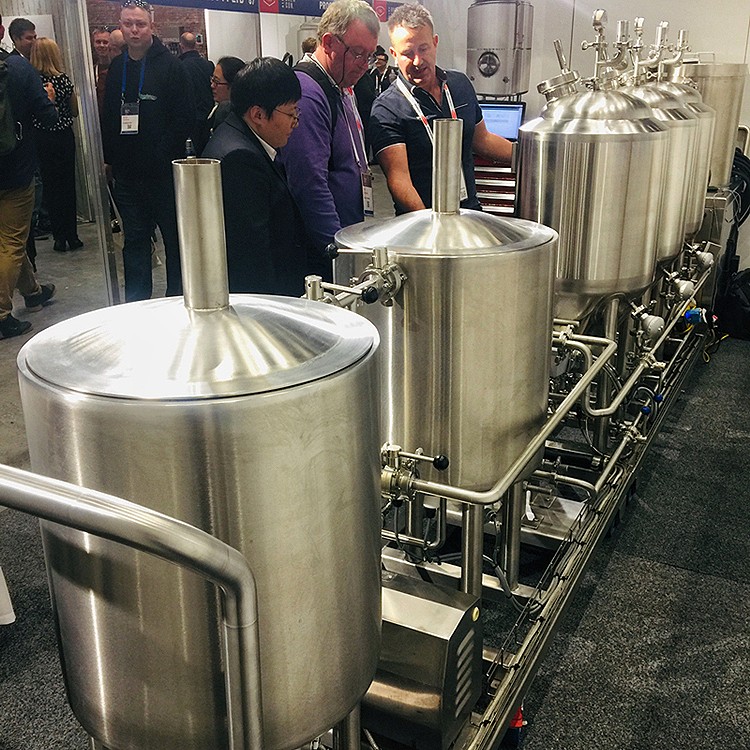
Marketplace home & living lifestyle home brewing d...
The home brewing and distilling market has grown in popularity in recent years, ...
More >>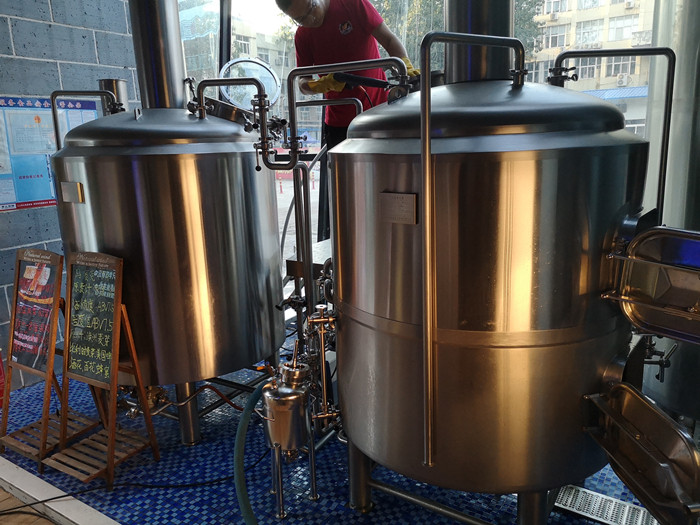
Beer brewhouse and fermentation tanks microbrewery
WEMAC-Main product categories:
Craft Beer equipment,Cider making machine,Beer b...
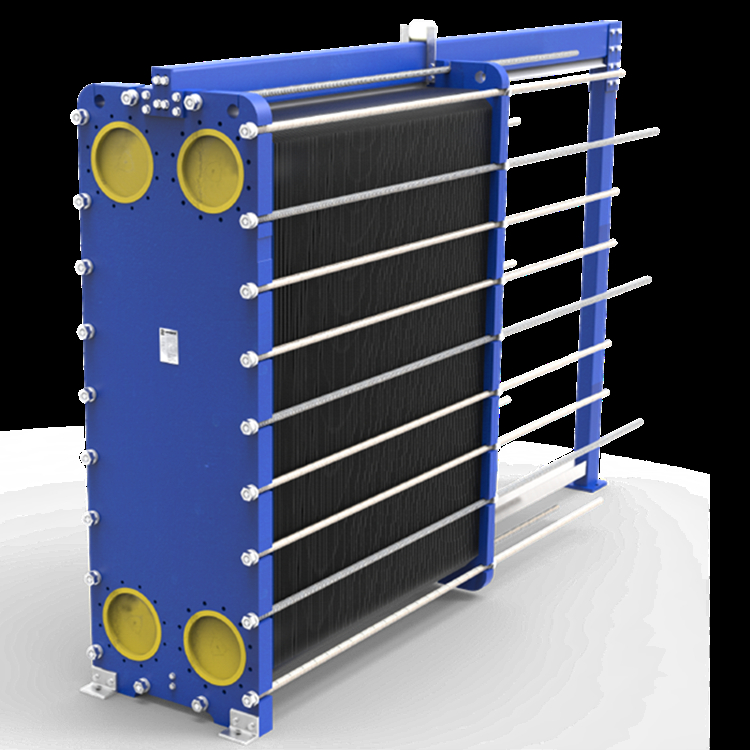
Best plate heat exchanger for beer brewery
The WEMAC plate heat exchanger (PHE) series is extensive, including multiple typ...
More >>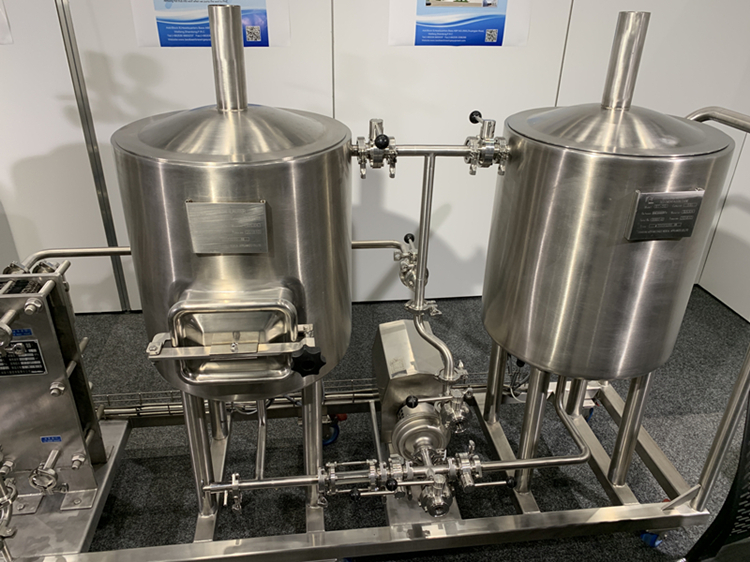
Home beer brew kits brewery equipment
This skid home brewing system is designed for craft brewing amateurs who has bee...
More >>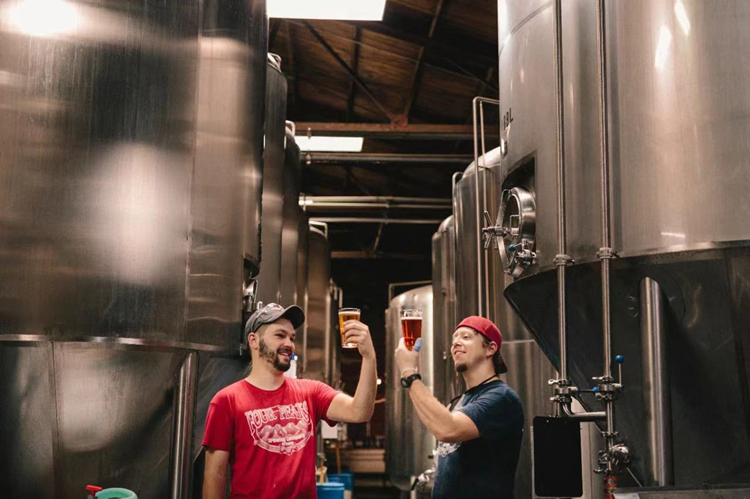
Top quality fermenter and beer bright tank
Brite or Bright Beer Tanks are also known as Beer Conditioning Tanks or Beer Ser...
More >>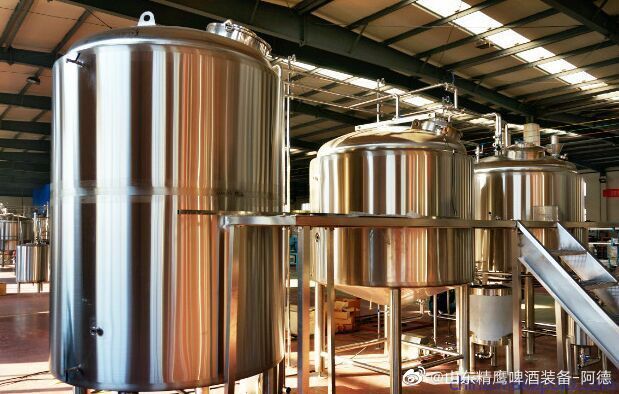
Pro two vessels 5BBL craft brewery in Michigan
Professional beer brewhouse sale well in Michigan state,turnkey brewery services...
More >>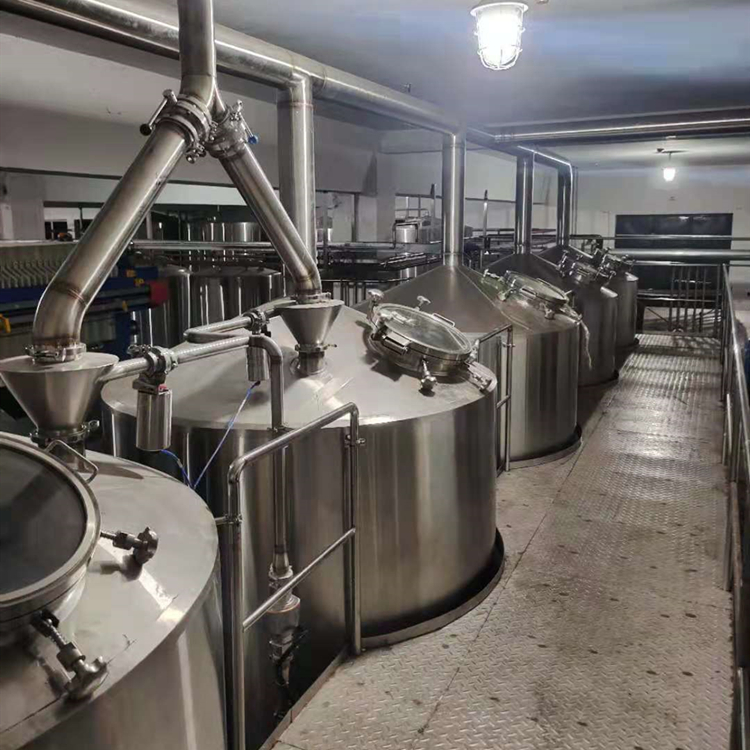
4000L Commercial Beer Brewery Equipment
4000L four vessels craft beer brewing brewery system,gas steam heating,with a be...
More >>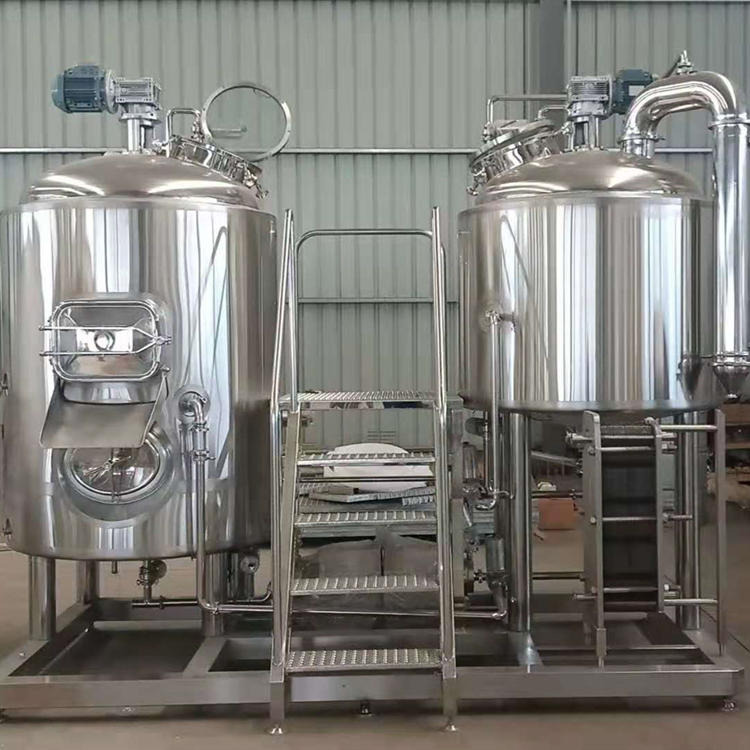
500L Top quality craft beer brewery equipment
Double vessels craft beer brewing brewhouse for sale,mash/kettle tun + lauter/wh...
More >>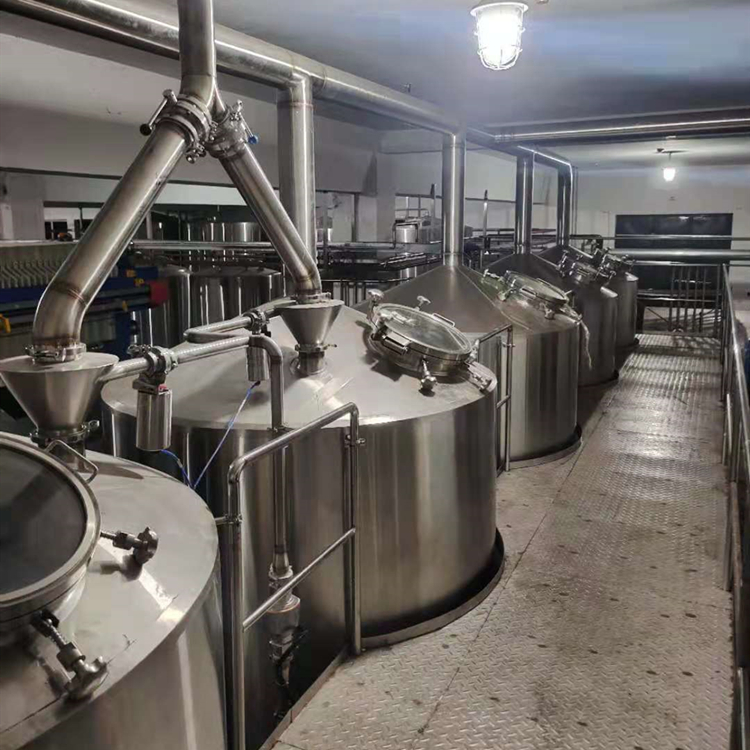
4000L Five vessels turnkey beer brewery
Five vessels craft beer brewhouse system suppliers,Double mash tun+double kettle...
More >>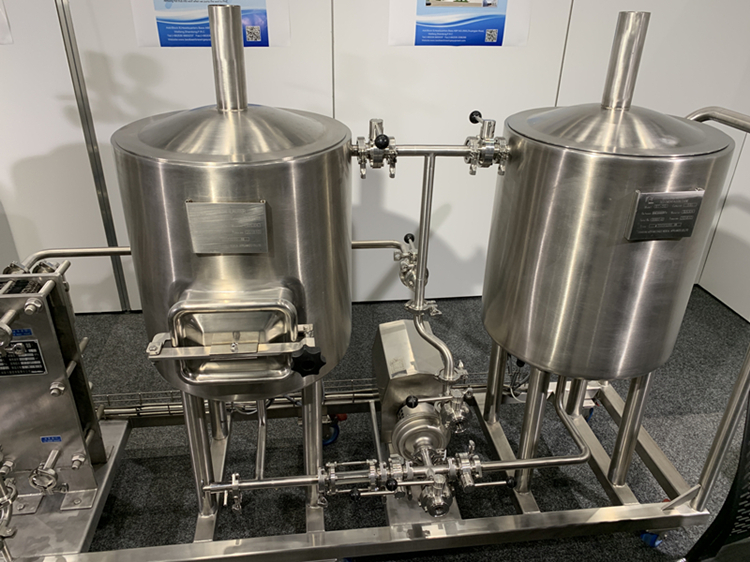
Best 50L home beer microbrewery equipment
Two vessels combination,mash/lauter tun+kettle/whirlpool tun brewery.electric co...
More >>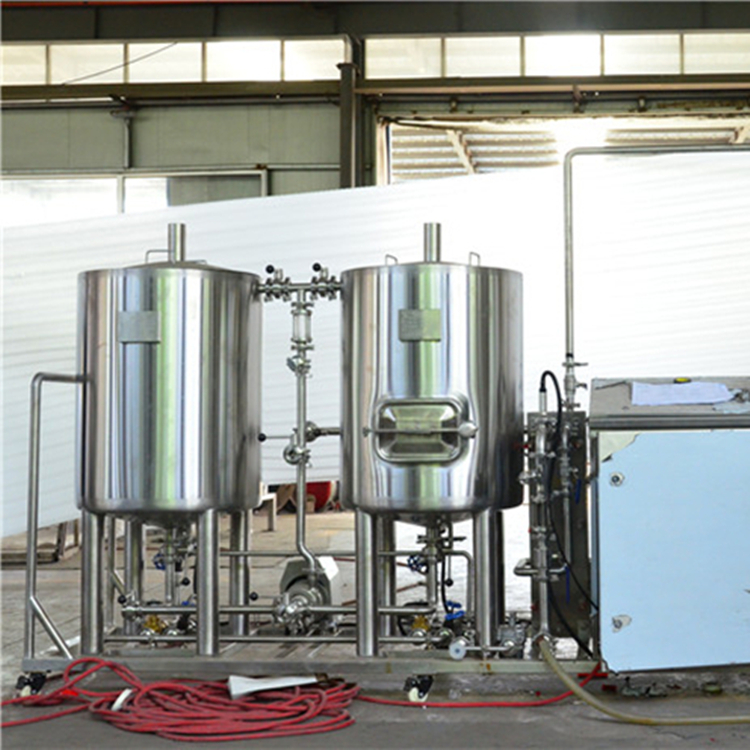
100L beer brewing home microbrewery
Mash/lauter/kettle tun+whirlpool tun,electric coil heating,two stages cooling,pl...
More >>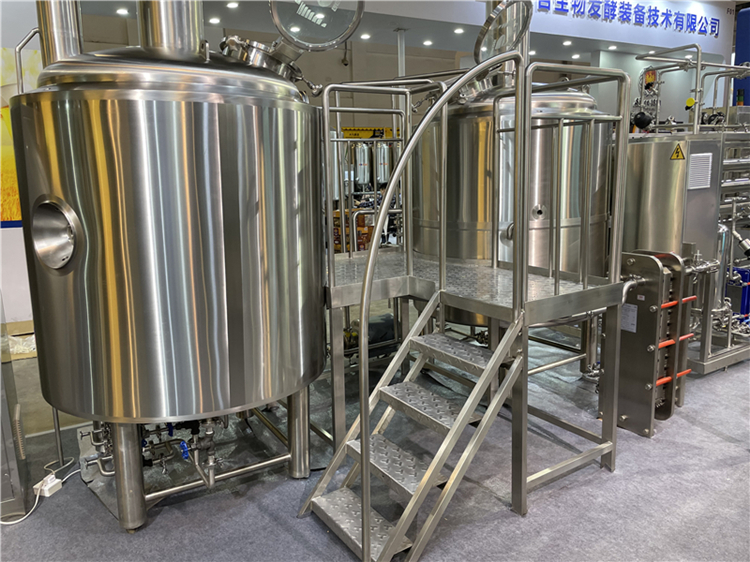
Build me a 1500L beer brewery
mini beer brewery machine from 50L,which is suitable to use in home and family b...
More >>